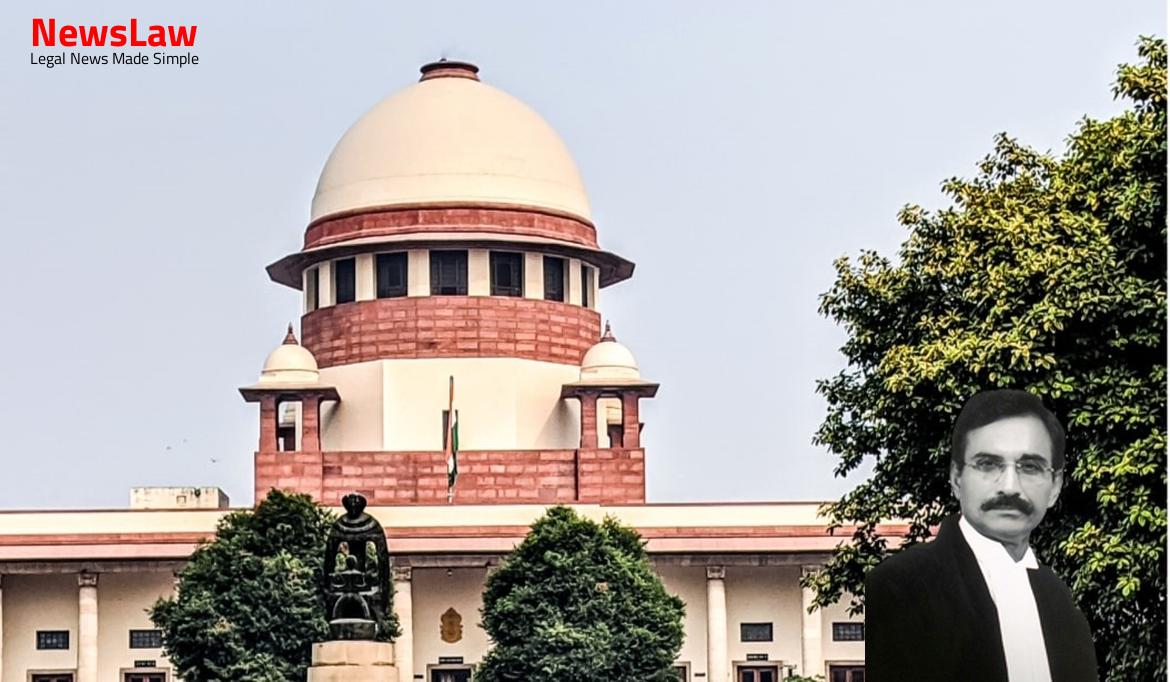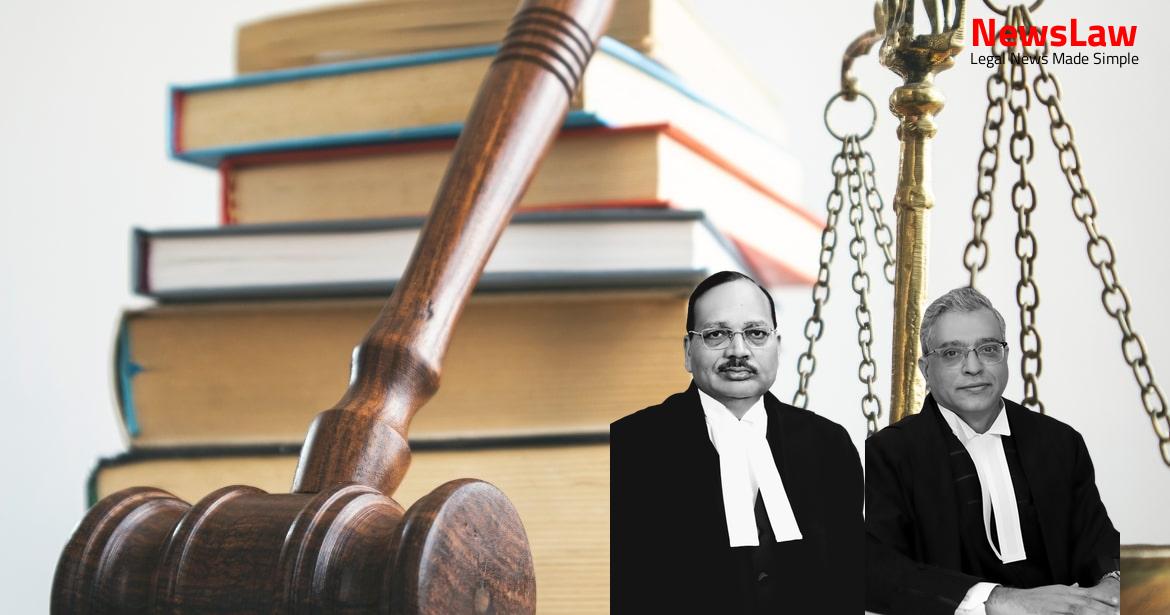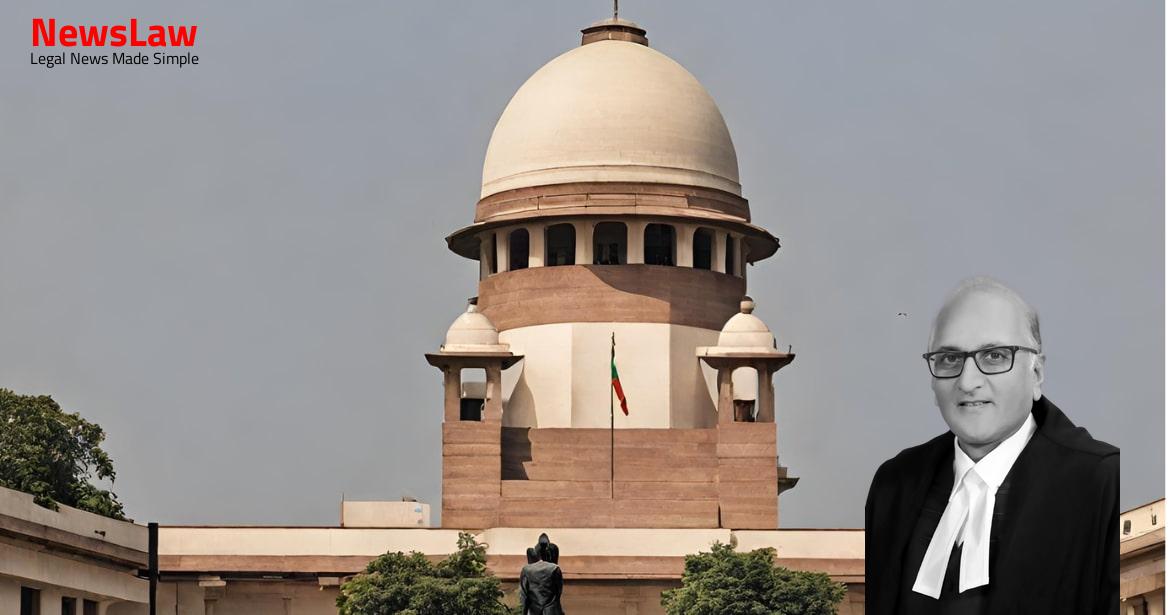The legal case delves into the court’s scrutiny of the prospective application of an Amending Act in the ongoing admission process, shedding light on the intricacies of legal interpretation and implementation. The Division Bench’s analysis and decision underscore the importance of aligning legal provisions with fairness and reasonableness in administrative actions.
Facts
- The appellant participated in the CLAT exam and was ranked 731 in the All India Merit List declared on 14 June 2019.
- All seats in the Domicile category of West Bengal were filled, and vacant seats were to be allocated based on candidate ranks.
- The Executive Council of the University passed a resolution on 10 August 2019 following the Academic Council’s recommendation on 27 July 2019.
- The University’s argument was that CLAT is conducted for admission of students nationwide.
- The appellant was selected for National Law University, Odisha but did not join.
- Seats from the unreserved category were to be allocated to the domiciled category.
- The last candidate admitted in the General Category had a rank of 262, while the appellant’s rank was 731.
- Reservation benefits under the Amending Act would be applicable from the next Academic Year, 2020-2021.
- The appellant sought admission based on the amended West Bengal National University of Juridical Sciences Act.
- The amendment provided for reservation of at least thirty percent of seats for students domiciled in West Bengal.
- An advertisement for CLAT was published on 5 January 2019, and the last date for application was 31 March 2019.
- The appellant’s grievance was that the reservation benefits were not extended in the Academic Session 2019-2020 despite the Act being amended.
- The Act had come into force before the CLAT exam but the reservation was not implemented by the University.
- The Single Bench of the High Court dismissed the writ petition as the Amending Act was deemed prospective.
- The Division Bench upheld the Single Bench’s decision, stating that the Amending Act is prospective and all West Bengal domiciled seats were already filled.
- 34 seats are reserved for candidates domiciled in West Bengal under the Amending Act, being 30% of the total intake.
- Contention was made that the Amending Act cannot be applied to the admission process which commenced in January 2019.
- The last candidate admitted from the General Category had a rank of 262, while the appellant’s rank was 731.
- The University confirmed the completion of the first round of admissions in July 2019.
- The Amending Act’s reservation for candidates to apply for CLAT is for the session starting after the Act’s enforcement.
- The Court deemed applying the Amending Act after the admission process had begun as unfair and changing the rules midway.
- It was noted that the elaborate admission exercise had started before the Amending Act came into force, causing prejudice to students who had already been allocated seats.
- In the Special Leave Petition, the issue was raised regarding accommodating the appellant for admission to the University in the year 2020-2021.
Also Read: Judicial Review of Answer Key in Teacher Selection Process
Arguments
- The appellant cannot be considered a meritorious candidate for the Academic Session 2019-2020.
- The benefit of reservation was extended from the next academic year, 2020-2021, as per the Universities’ decision.
- The University’s decision to extend the benefit of reservation from the next academic year was fair, reasonable, and not arbitrary.
- The University’s action of not granting the benefit of domicile to the appellant after the Amending Act came into force was deemed unwarranted, illegal, and contrary to the provisions of the Act.
- The appellant’s rank was 731, while the last admitted domicile candidate from West Bengal had a rank of 356, reducing the chances of the appellant getting admission, even if domicile option was available.
- The argument was made that the University’s decision to provide compulsory reservation was in accordance with the Amending Act due to the ongoing admission process and the large number of candidates in CLAT.
- The Act did not specify the Academic Year for implementing reservation benefits, so the University chose to extend it from the next academic session.
- Mr. Vikas Singh’s arguments regarding the reservation benefits for West Bengal domiciled students were based on the immediate implementation of the Amending Act.
- The matter of providing admission to a meritorious candidate in the next session was discussed based on the S. Krishna Sradha case, emphasizing the entitlement of such candidates if they approached the Court promptly.
- Mr. Vikas Singh also referred to the Anupal Singh case to argue that the Amending Act did not alter the rules of the game mid-selection process.
- The Bill for amending the Act was tabled on 16 November, 2018.
- The decision of the Executive Council of the University was taken within a reasonable time and cannot be said to be arbitrary as the admission process was initiated before the Amending Act came into force.
- The expression ‘commencement of the Amending Act ‘at once’ means within a reasonable time after the commencement of the Act.
- The action of the University to grant the benefit of the Amending Act from the next academic session cannot be said to be unreasonable and is a possible decision in terms of the Amending Act.
- It was not possible to give effect to the provisions of the Act from the Academic Session 2019-2020.
Also Read: Jurisdiction and Substantial Questions of Law in Land Dispute Case
Analysis
- The amendment regarding reservation policy of 30% seats came into force immediately on 21 May 2019.
- There was no provision in the Amending Act specifying its application to ongoing admission processes.
- The decision of the University to implement reservation from the next Academic Year was not contradictory to the Amending Act due to the unavailability of the policy at the start of the admission process.
- The bifurcation of seats among categories was incorrect due to miscalculation of seats as per statutory provisions.
- The Academic Council of the University resolved in July 2019 to implement 30% reservation for West Bengal domiciles from the next Academic Year.
- The Amending Act does not require the benefit of reservation to be granted in the ongoing academic session.
- The University had the discretion to decide to extend the benefit from the next academic session.
- No error was found in the High Court’s findings or in the University’s decision, which aligned with the provisions of the Amending Act.
Also Read: Challenge of Secured Creditor’s Procedure
Decision
- The appeal is dismissed
- No order is given as to costs
Case Title: SHREYAS SINHA Vs. THE WEST BENGAL NATIONAL UNIVERSITY OF JURIDICAL SCIENCES (2020 INSC 541)
Case Number: C.A. No.-003085-003085 / 2020



